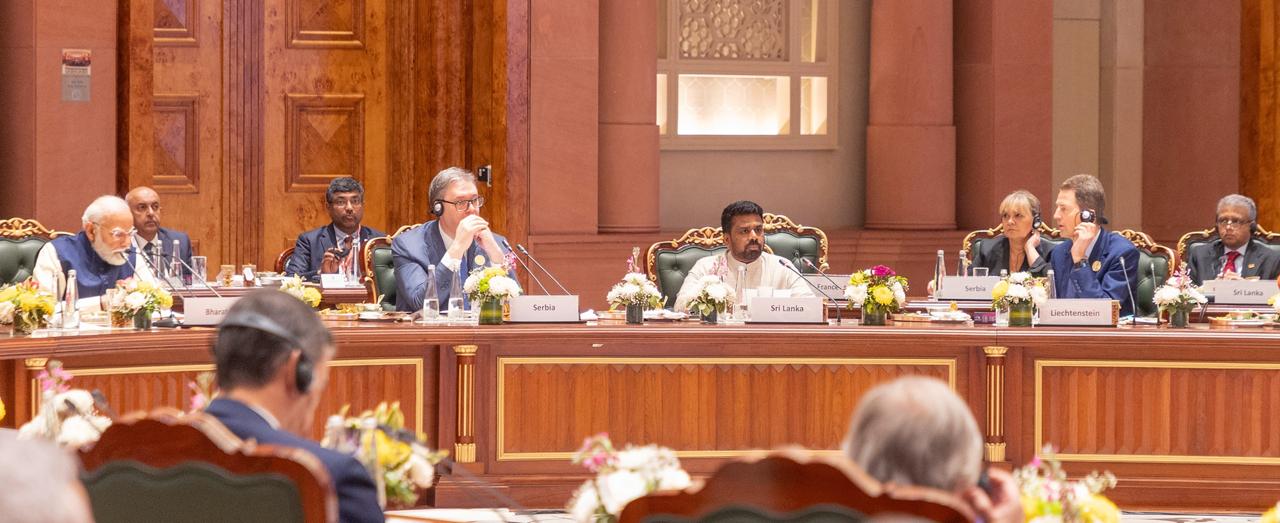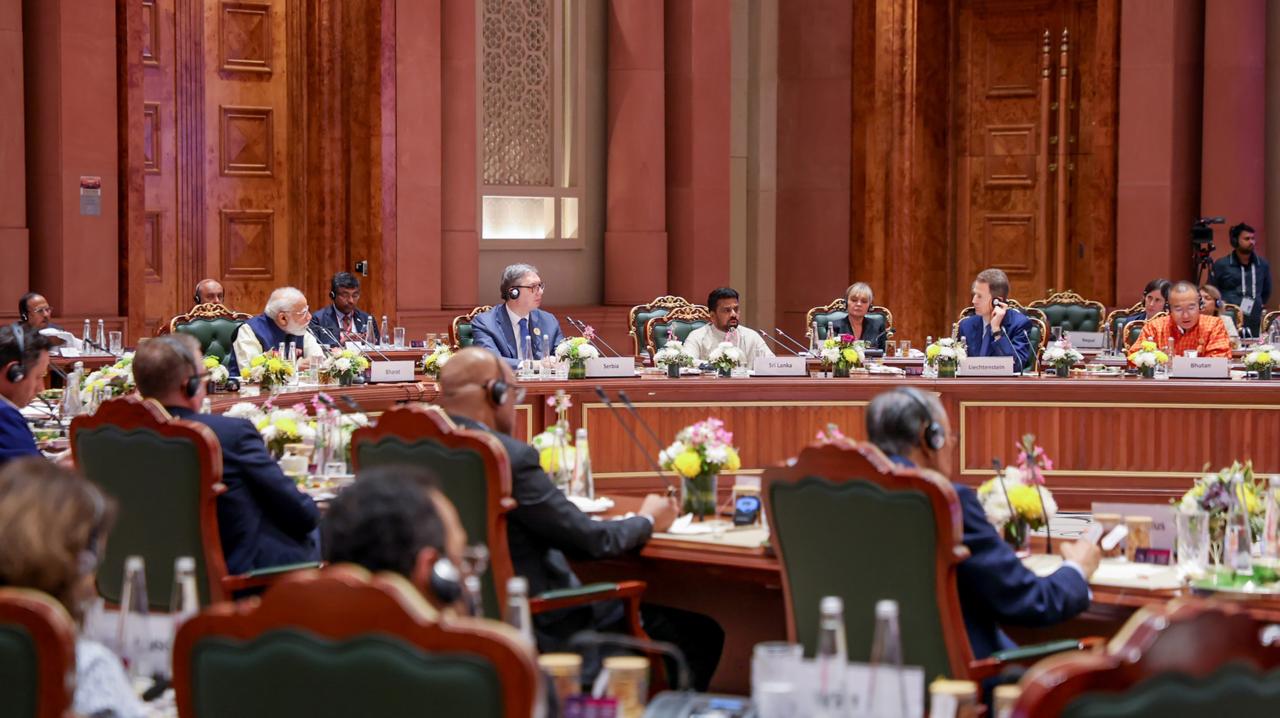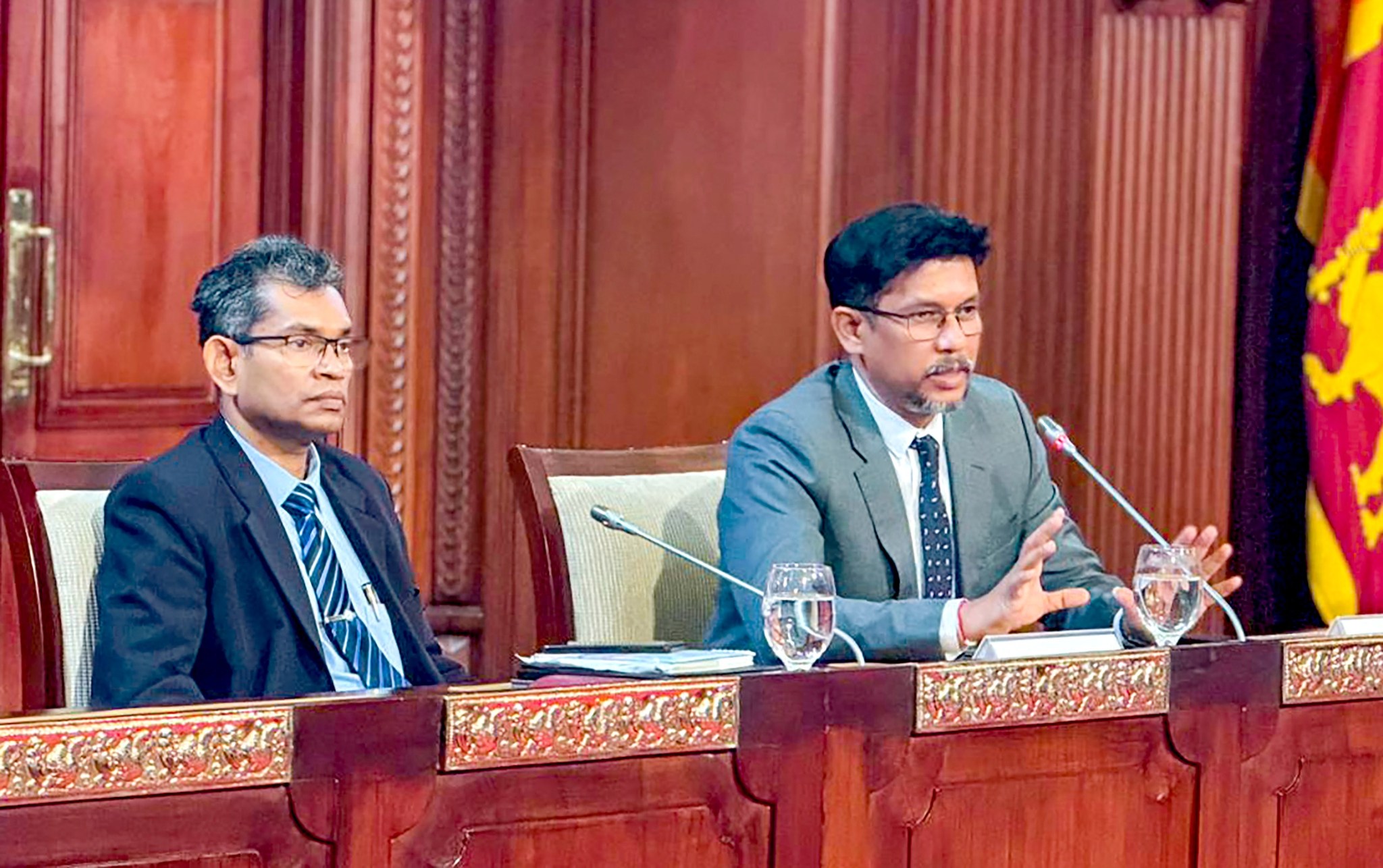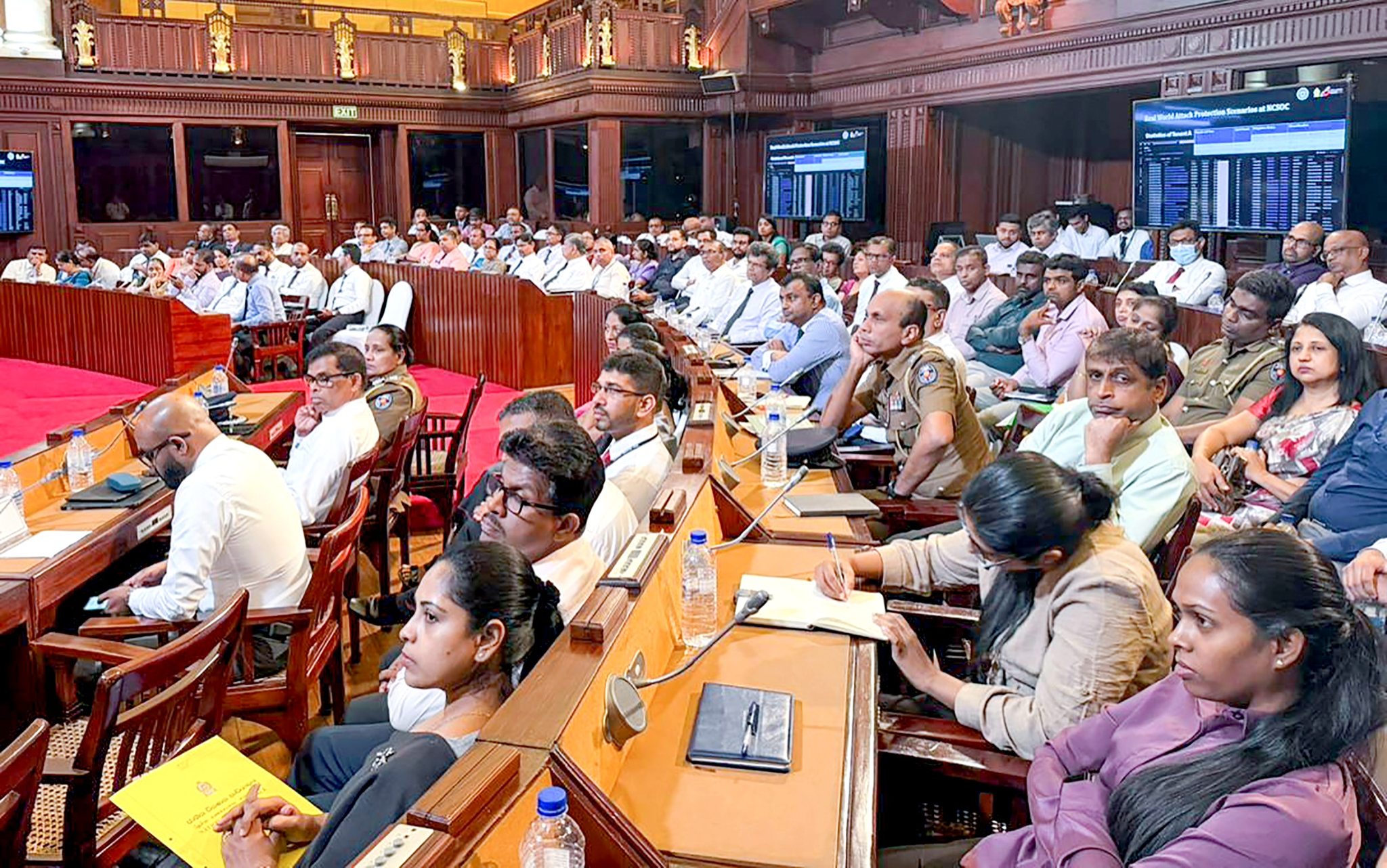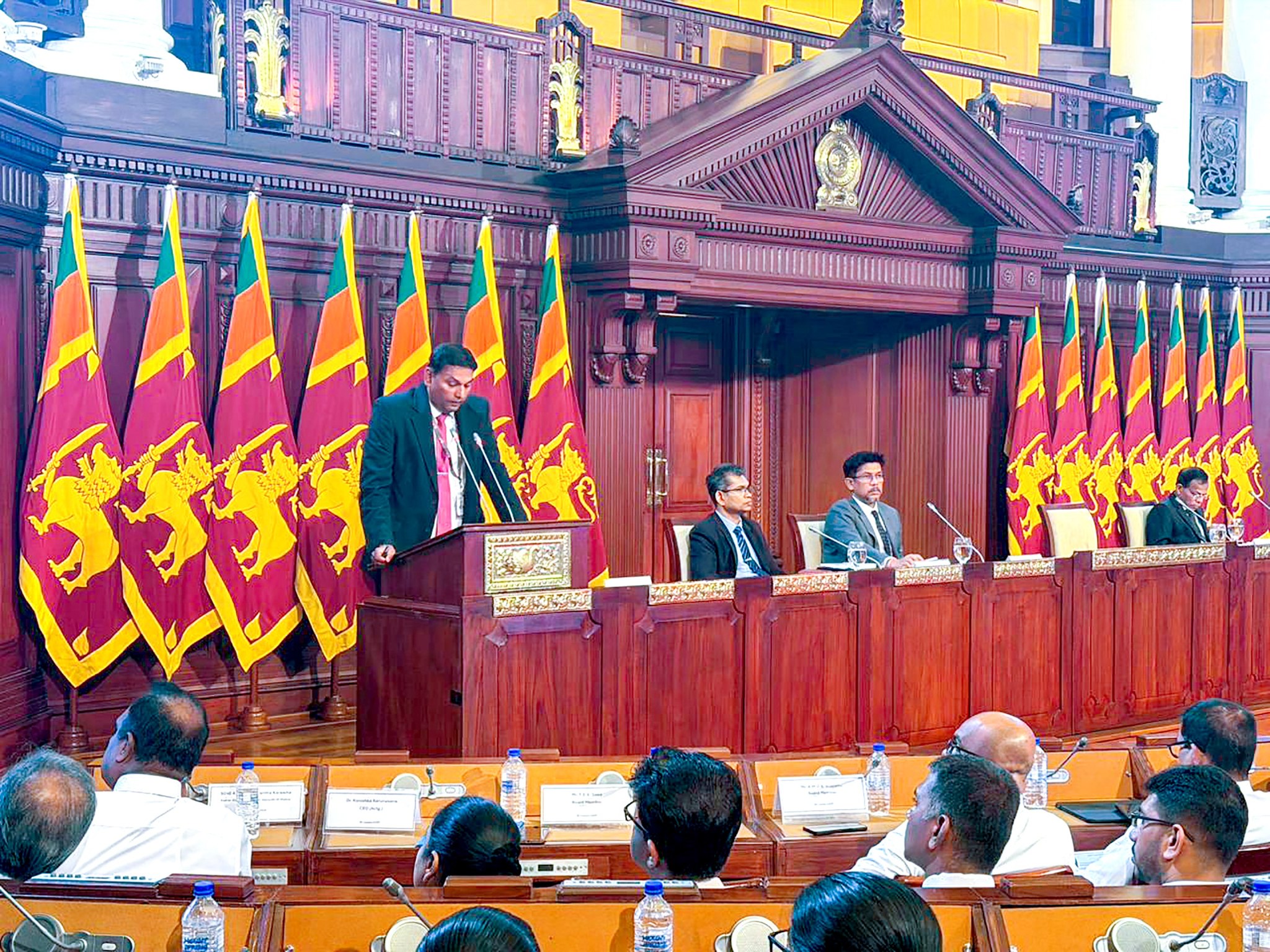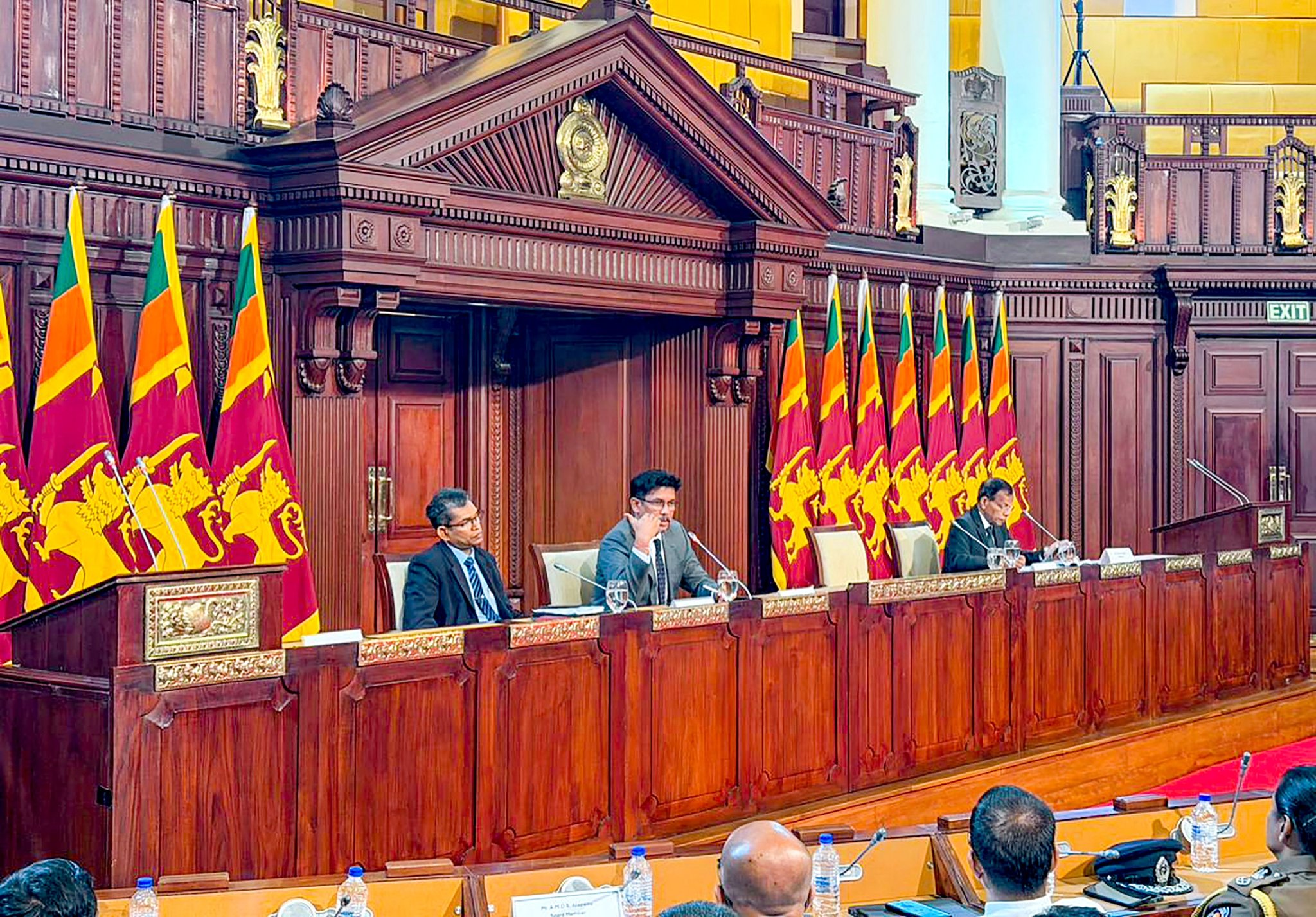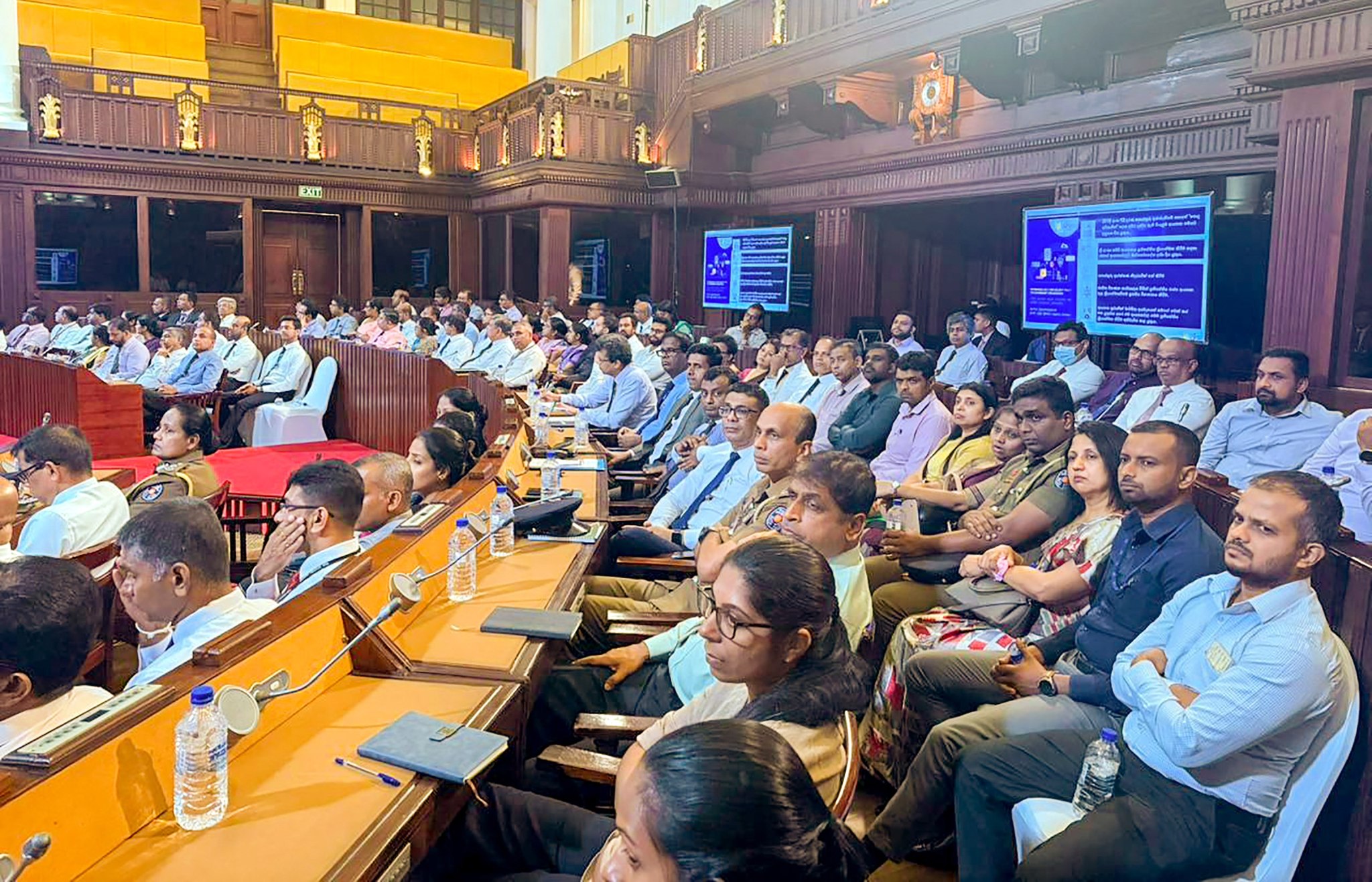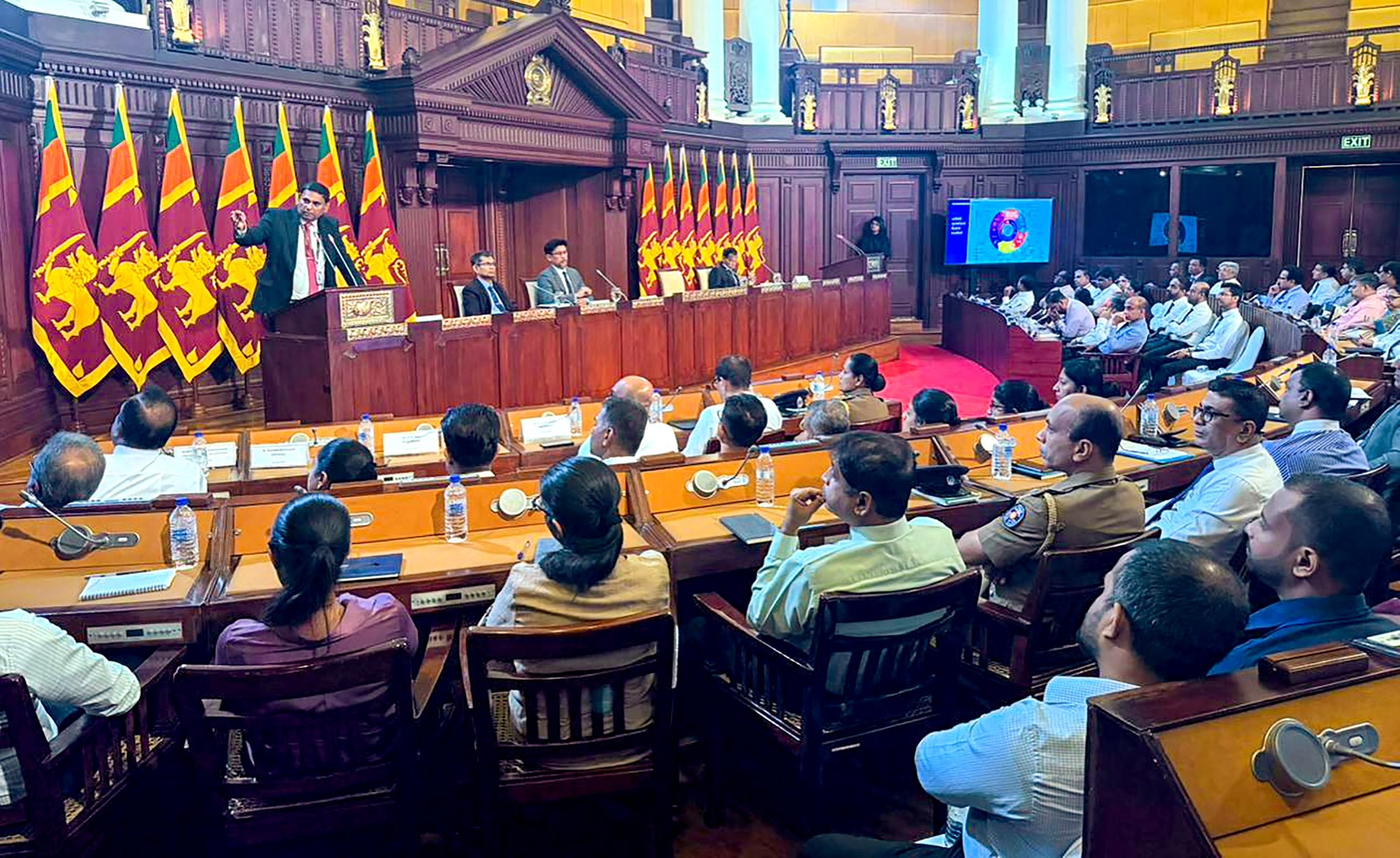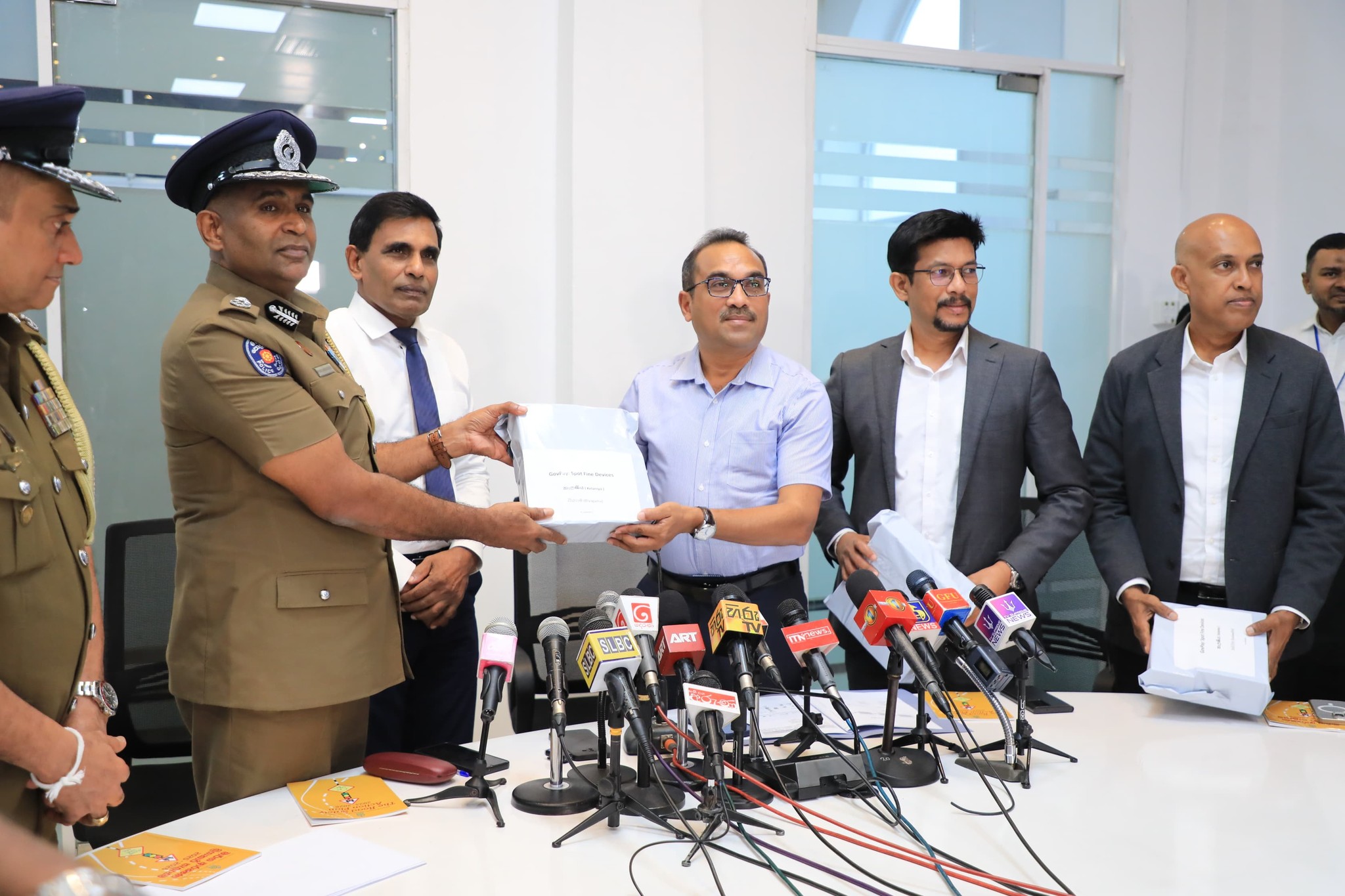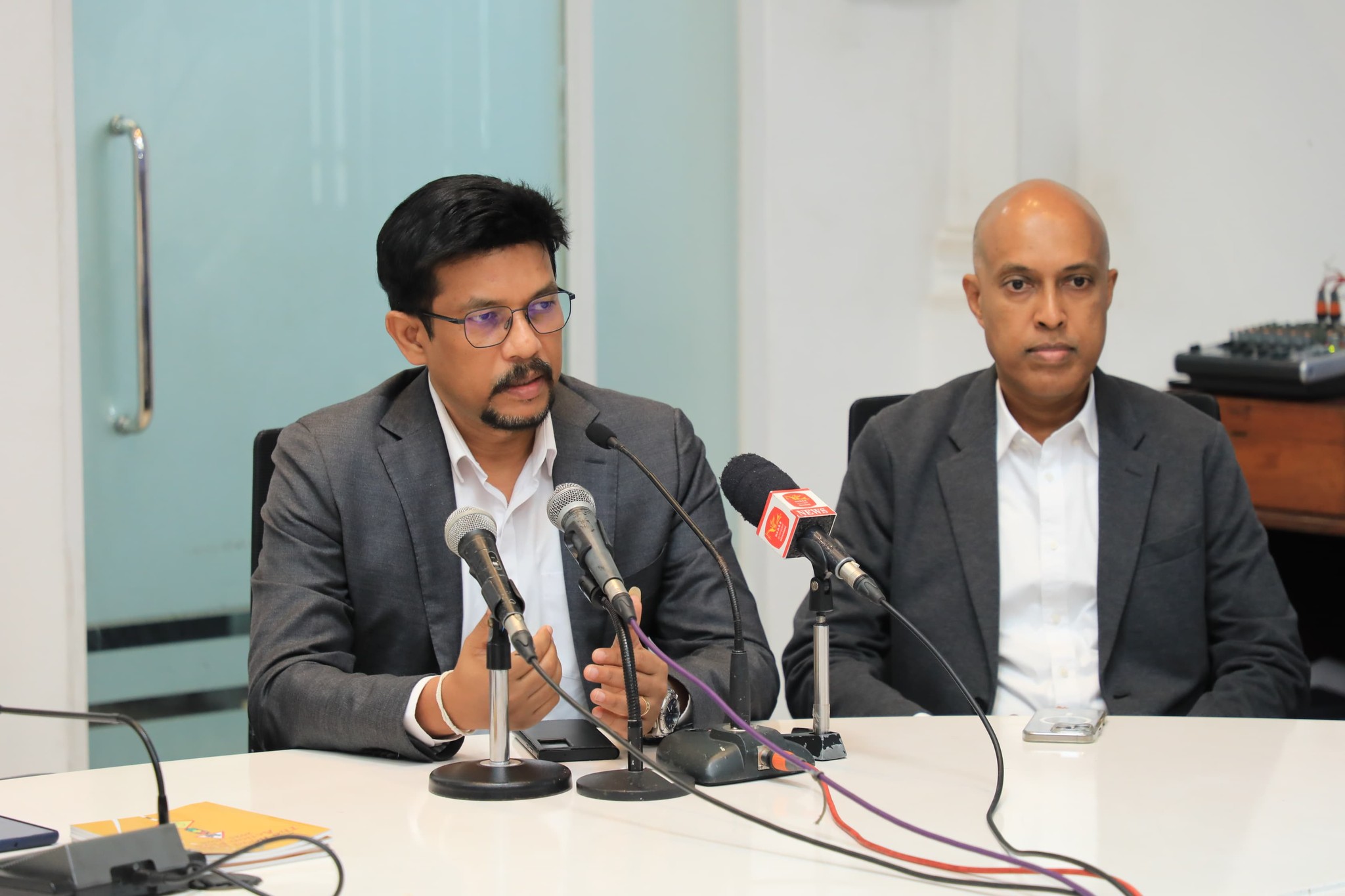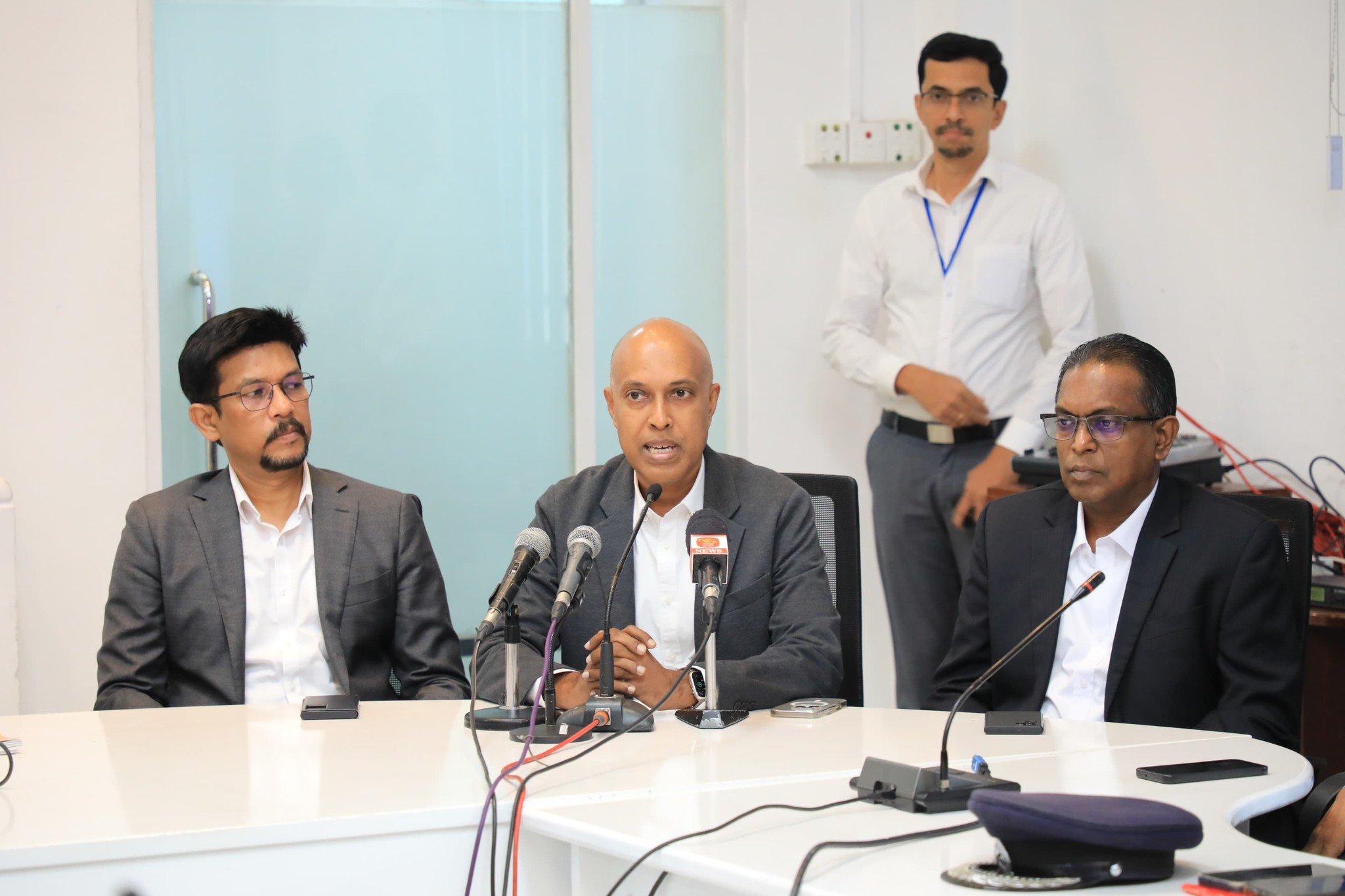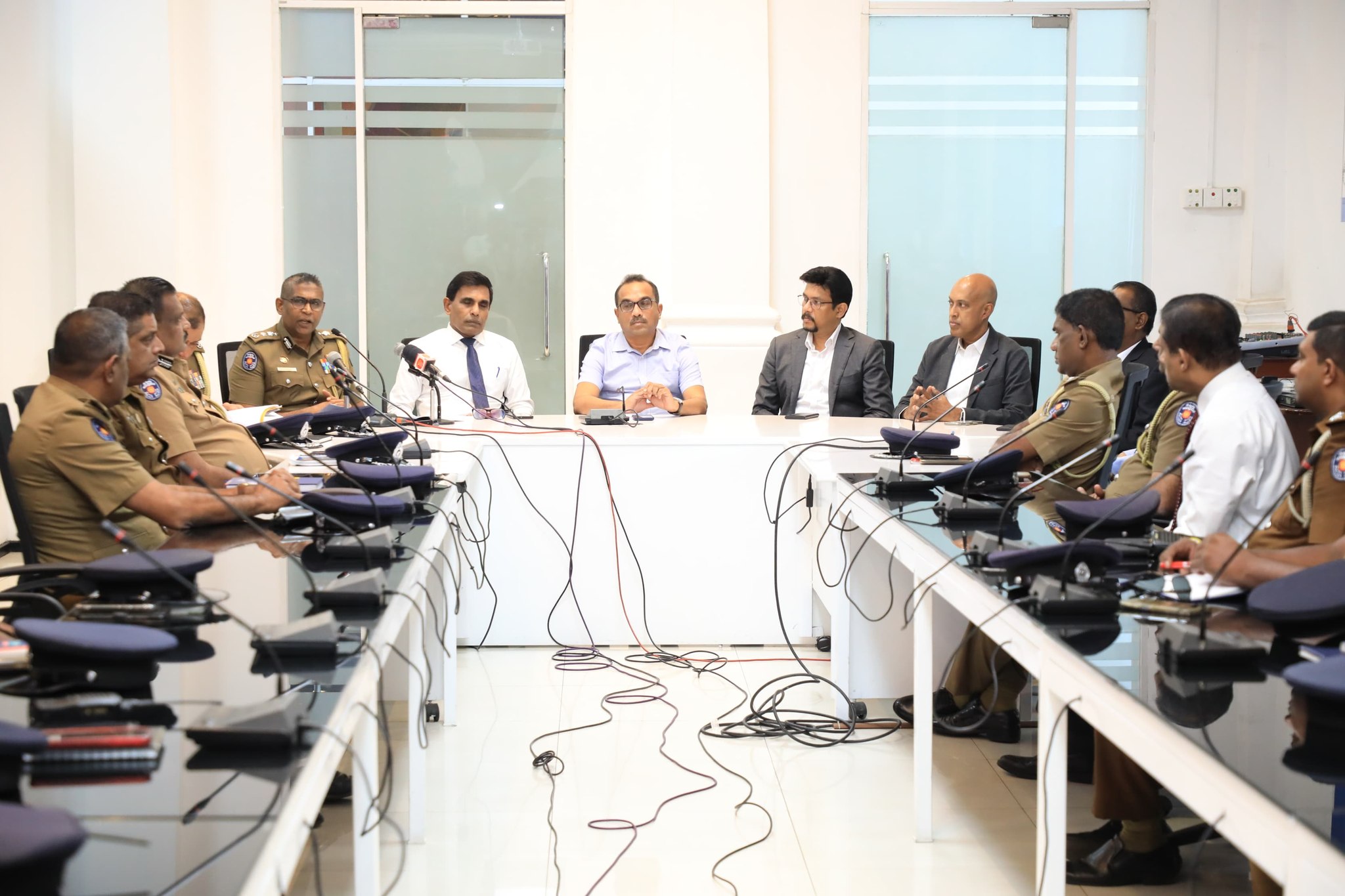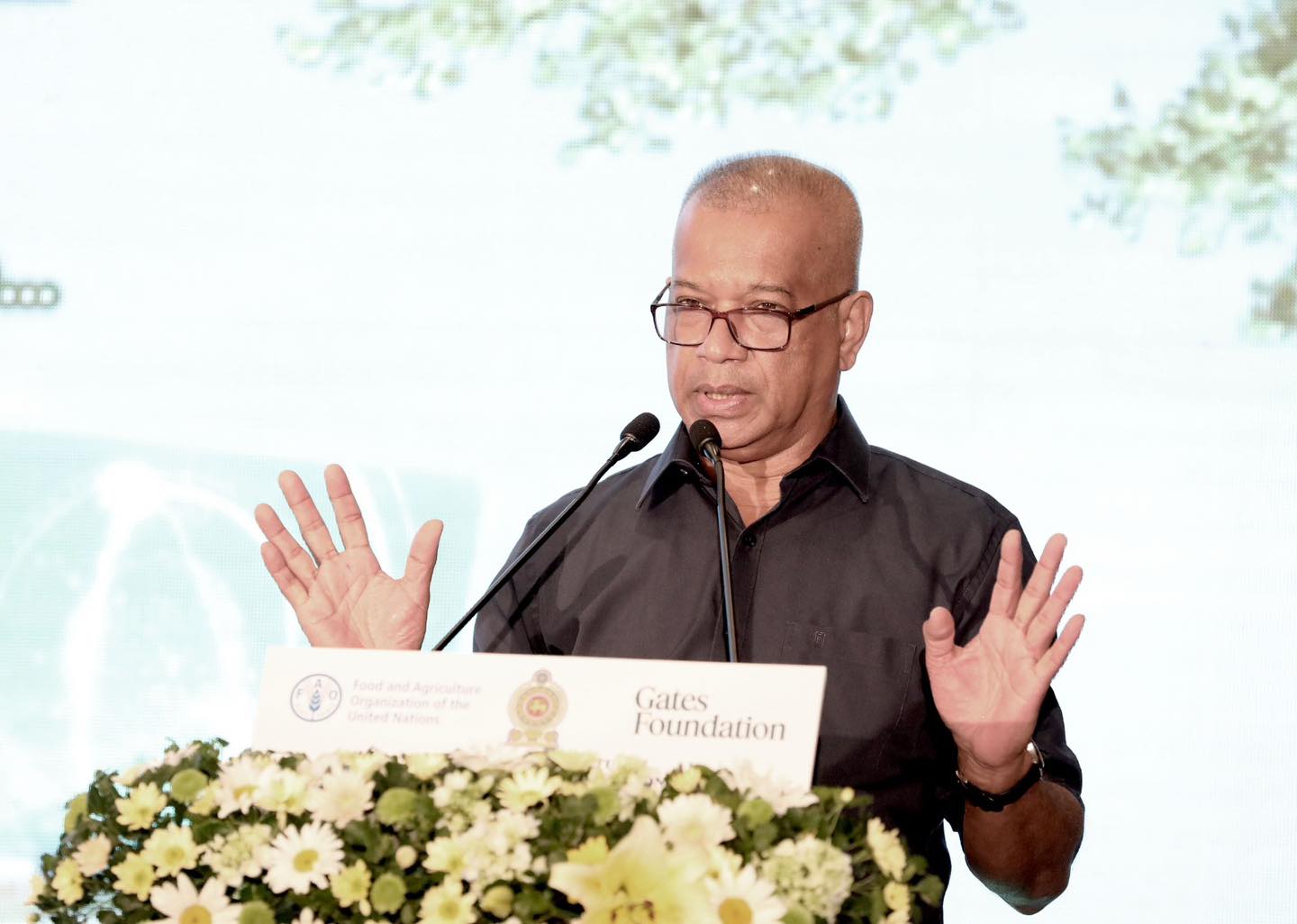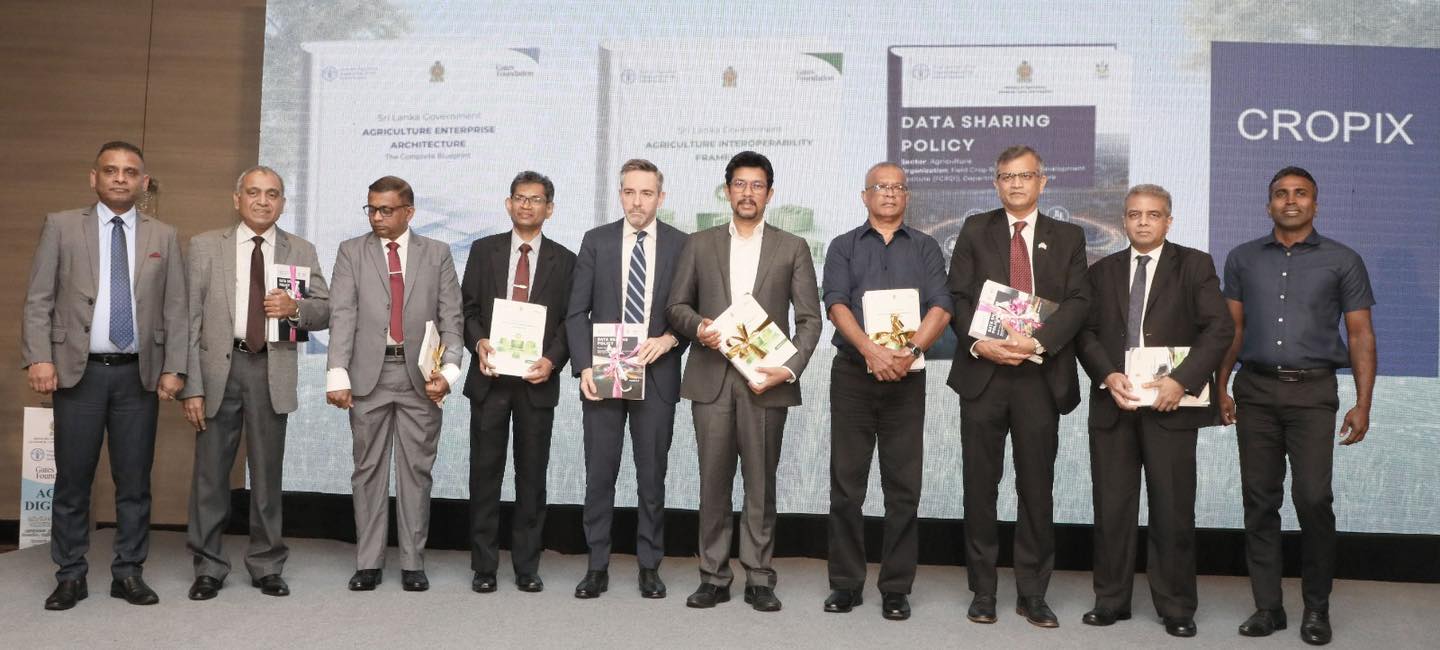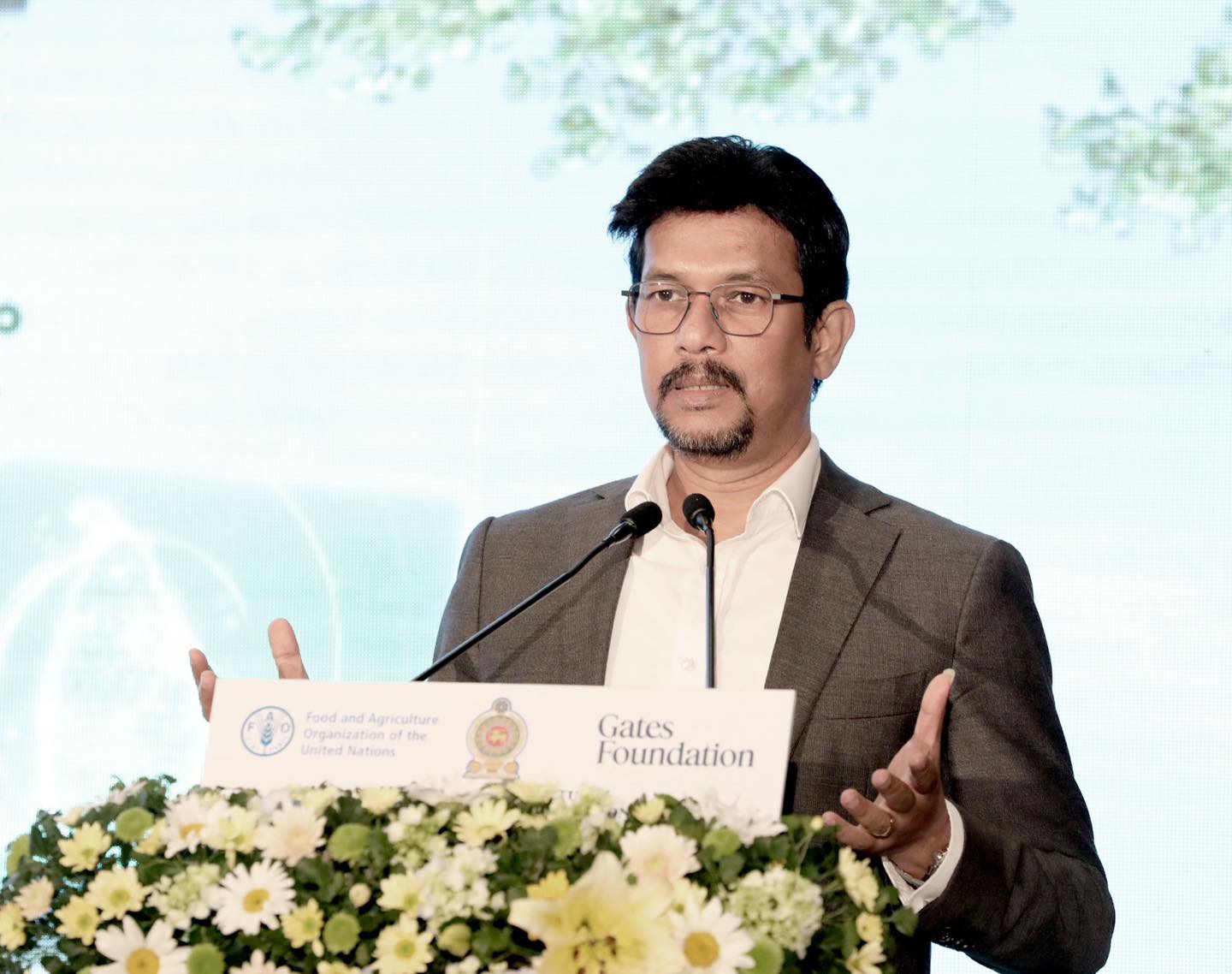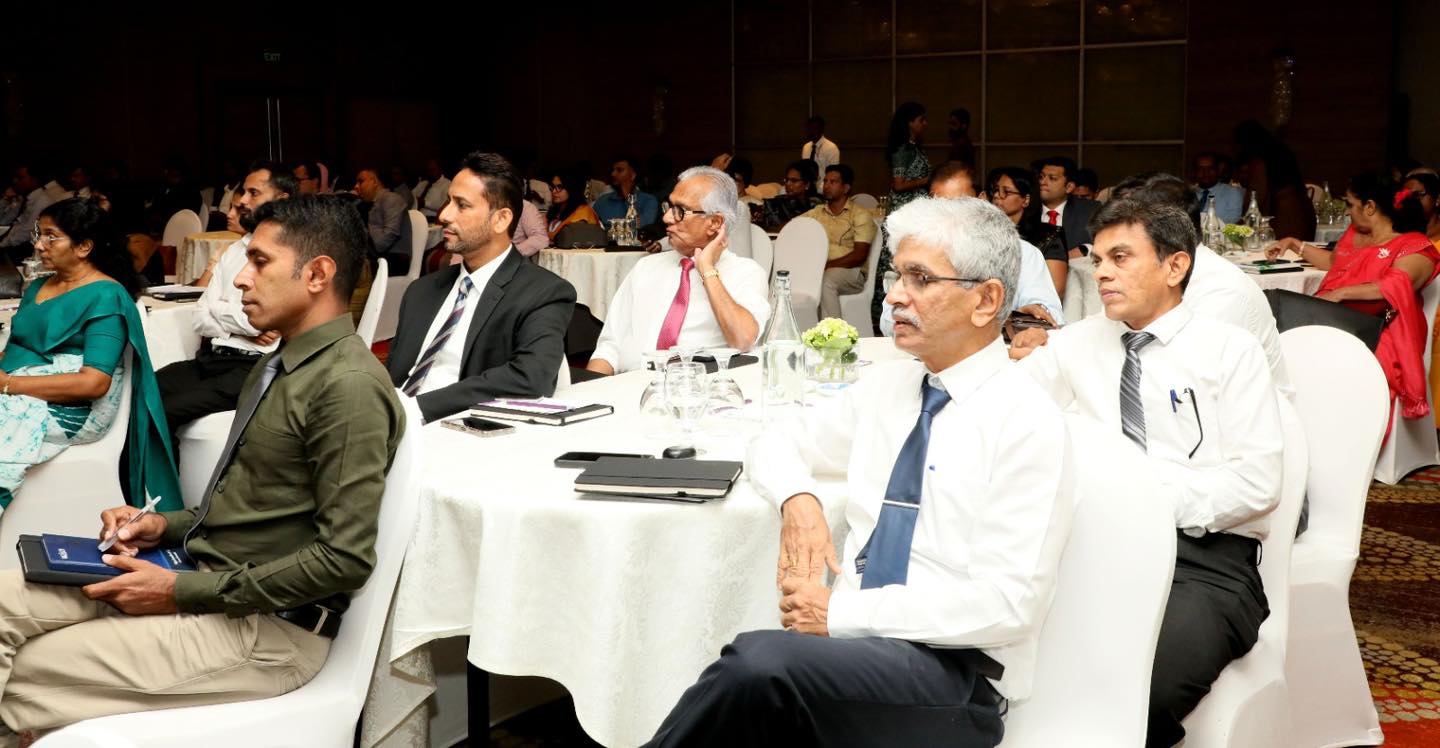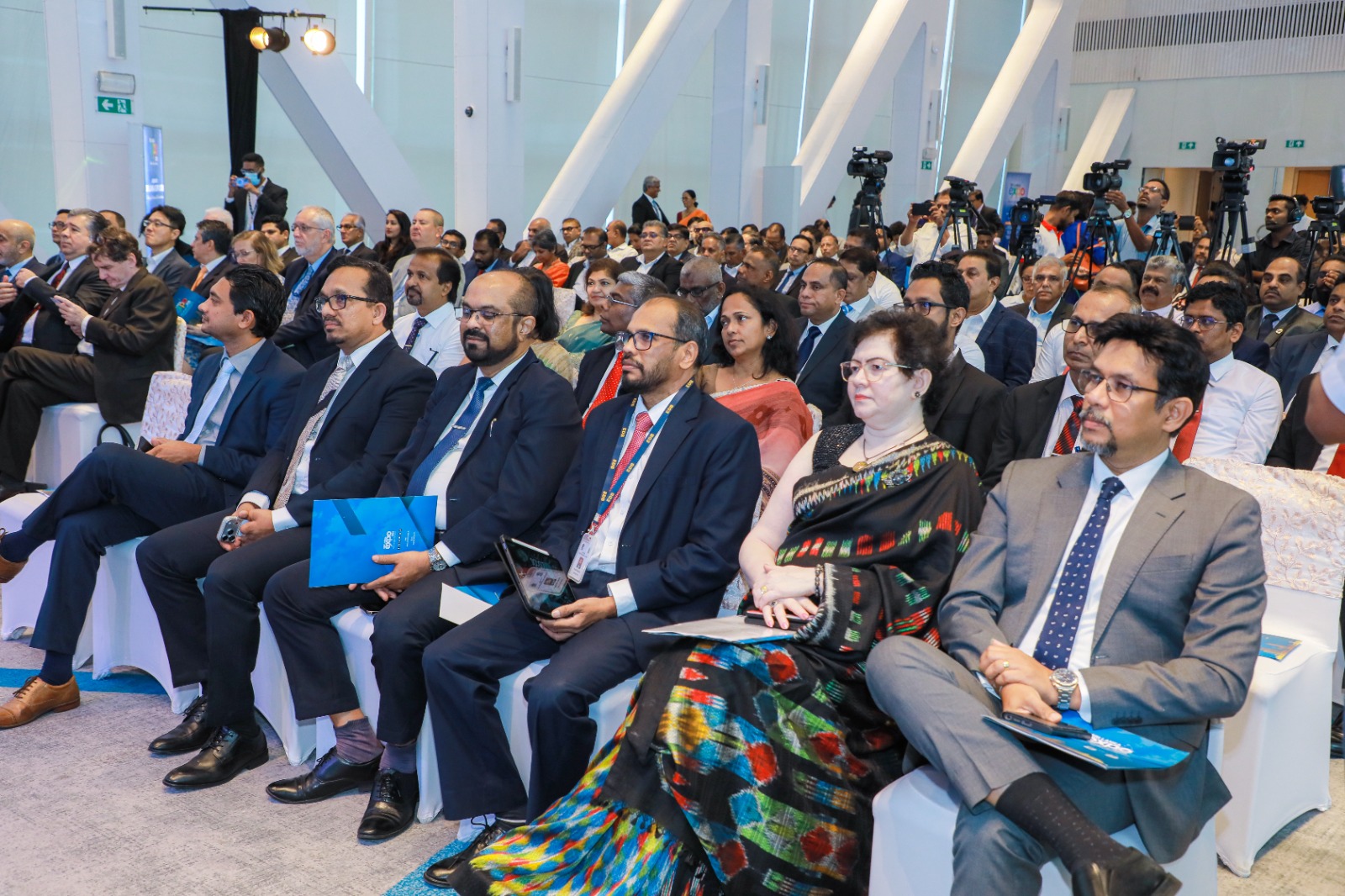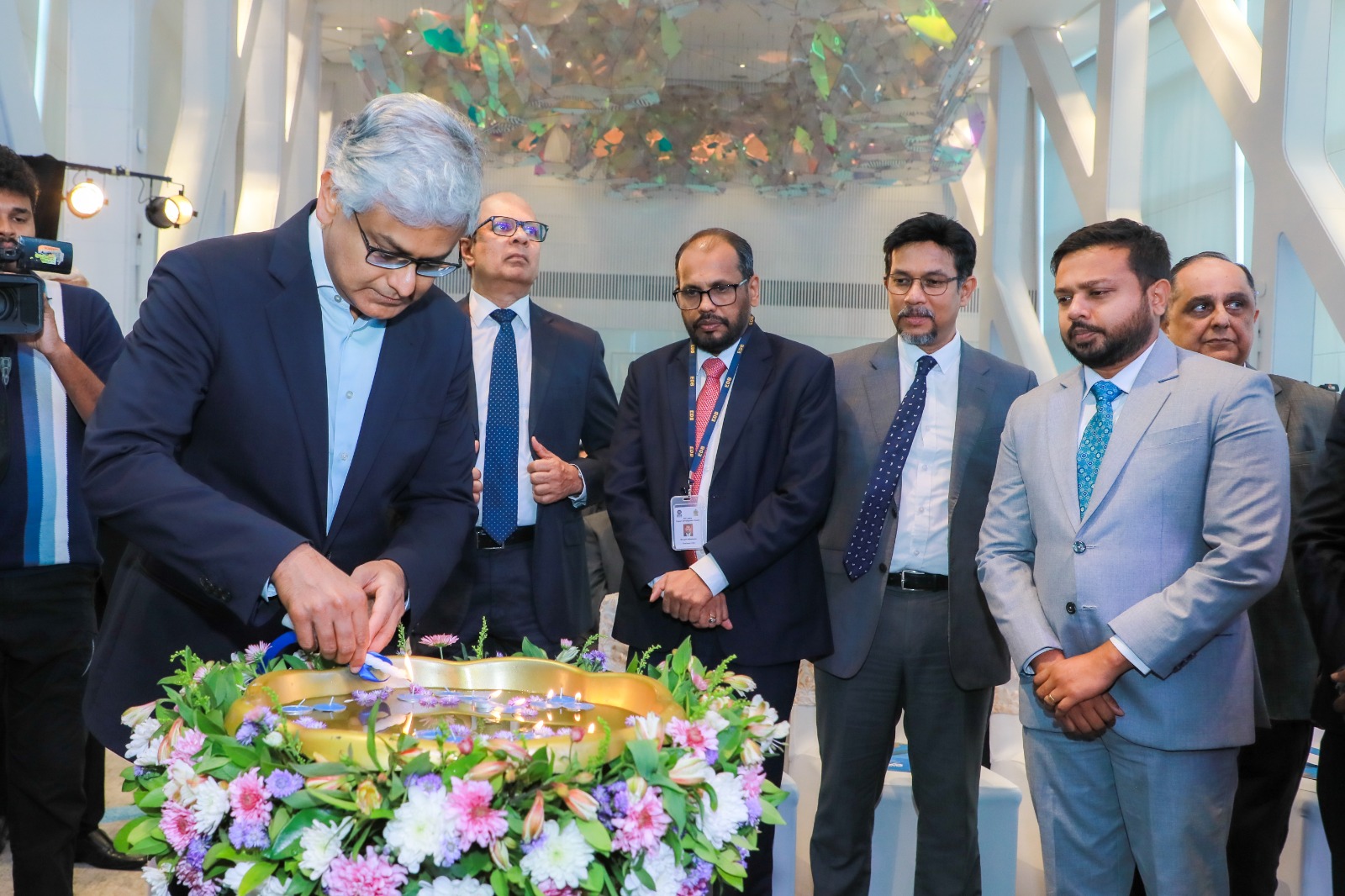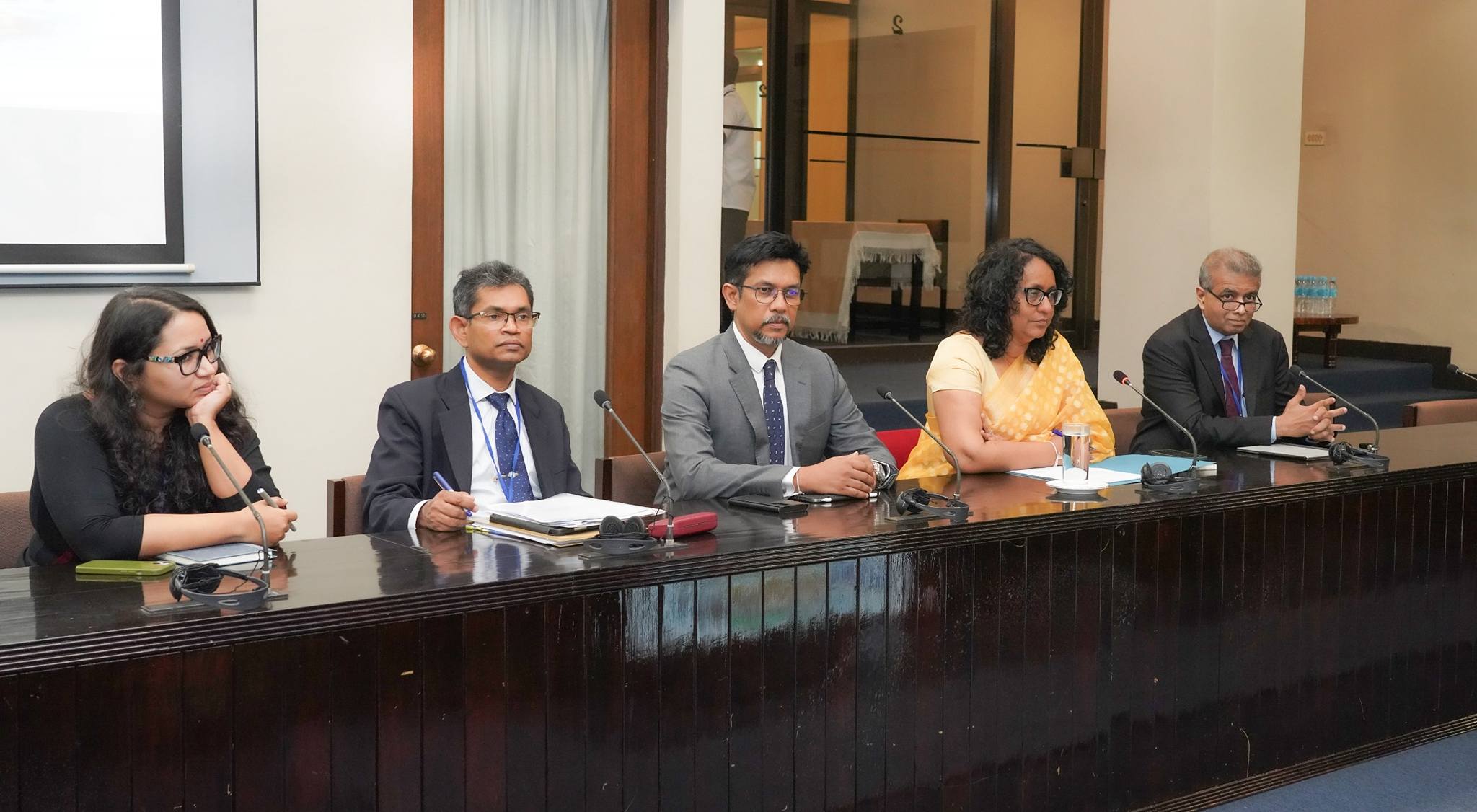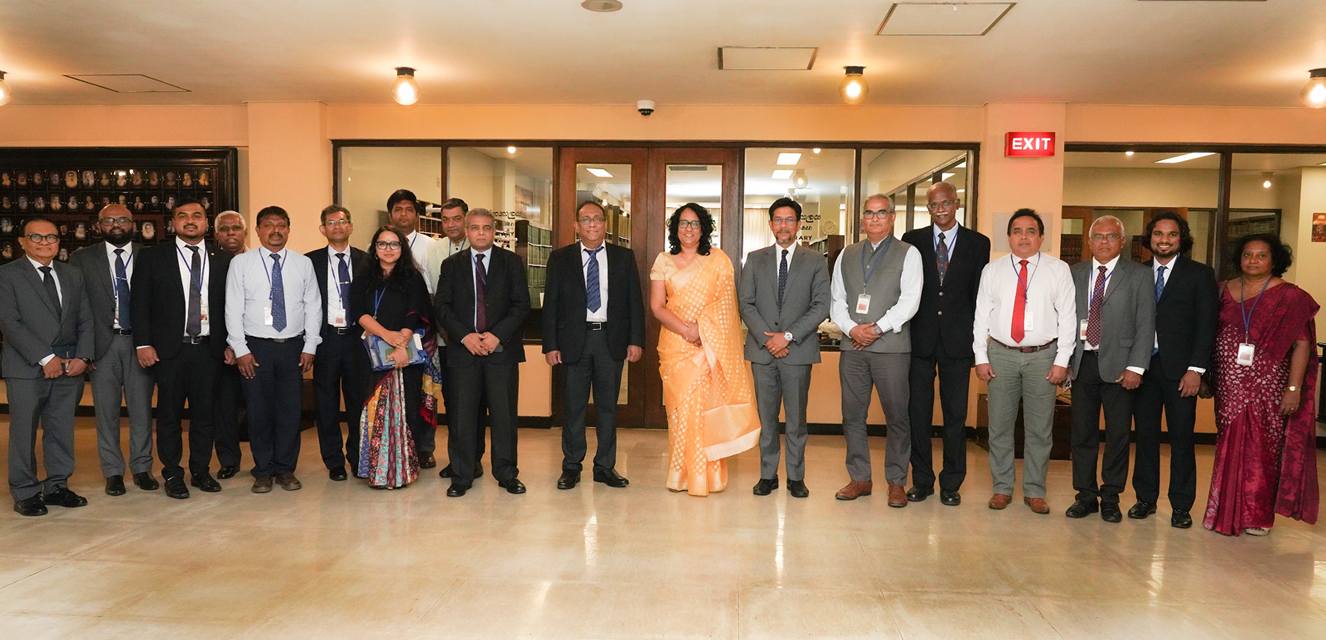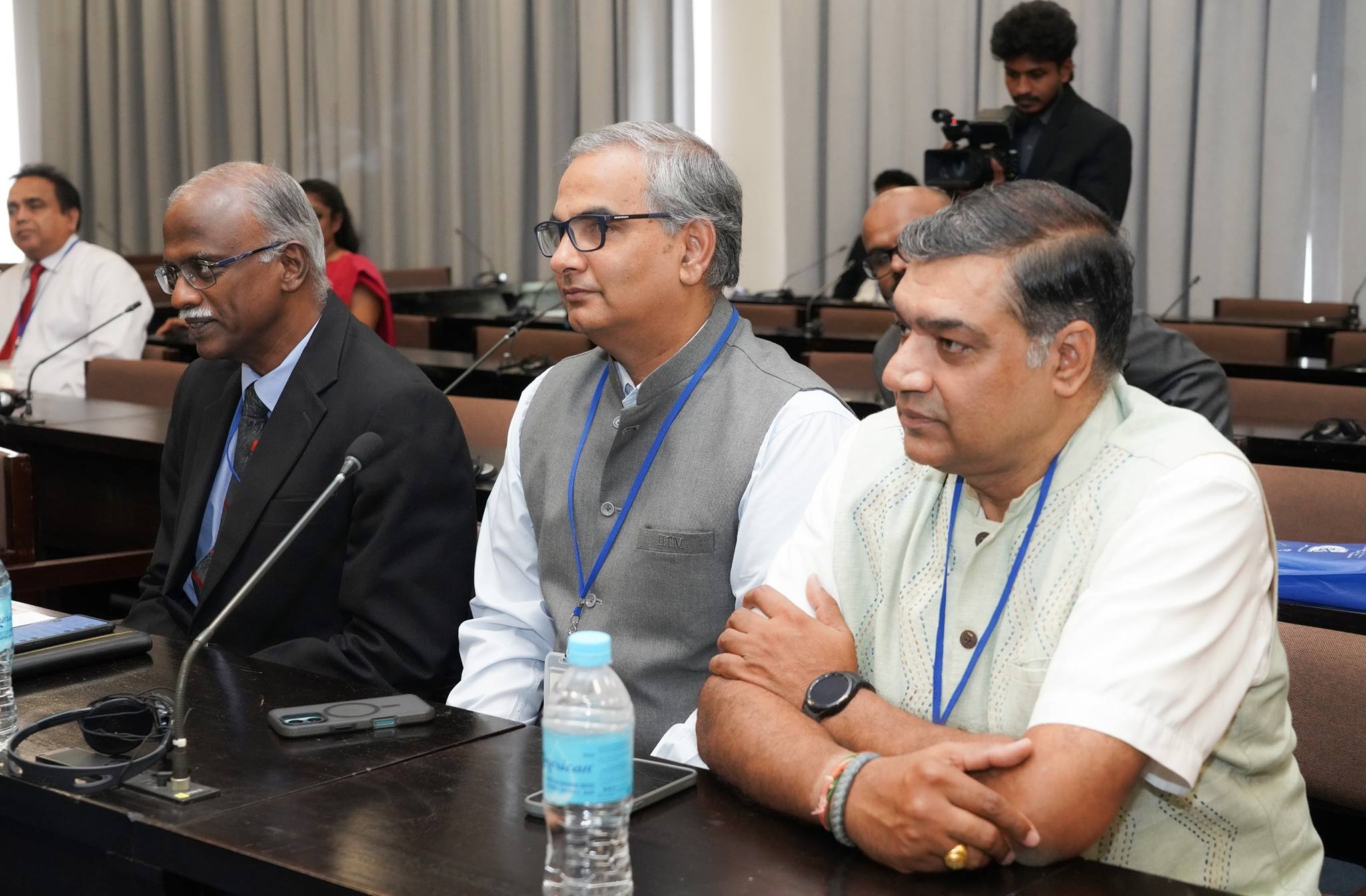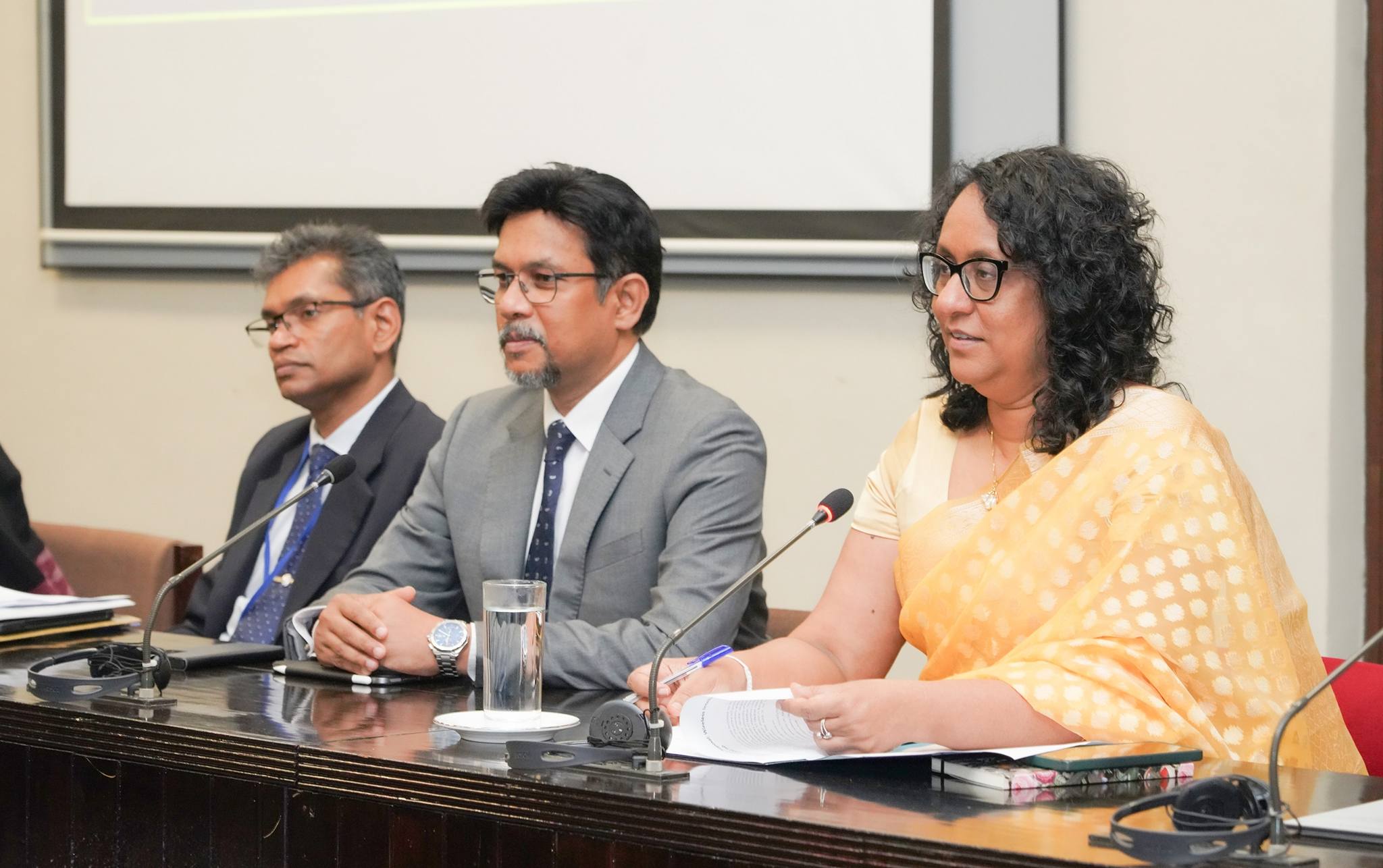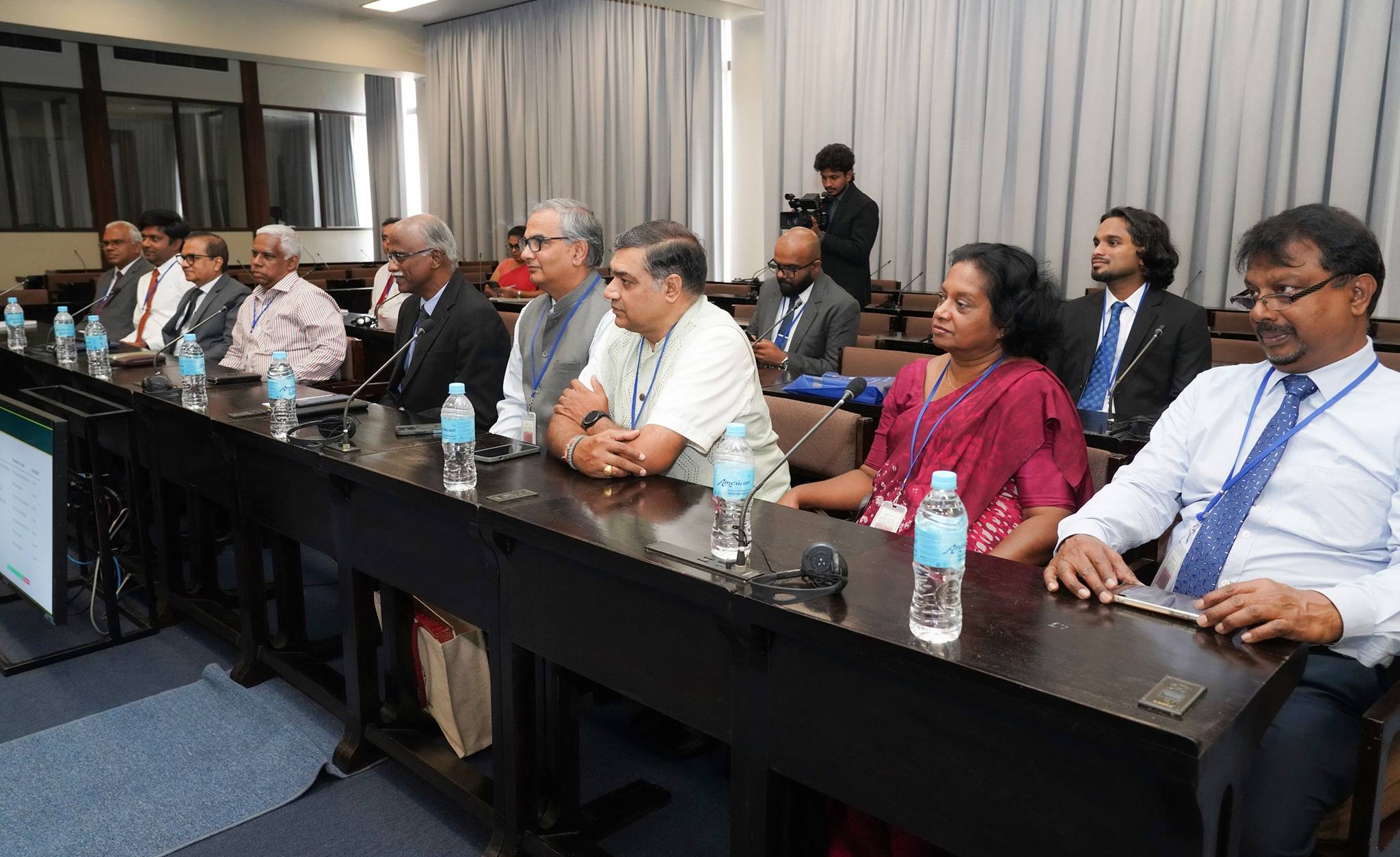• AI technology must be harnessed to promote the cultural values and capabilities of humanity • AI infrastructure is the next frontier of economic and cultural cooperation
- President emphasises at Leaders’ Session of AI Impact 2026 Summit
President Anura Kumara Dissanayake stated that Sri Lanka is prepared to share common values on artificial intelligence, ensuring that no one is left behind and to move forward collectively through mutual learning based on ethical principles. The President made these remarks today (19) while addressing the Leaders’ Session of the AI Impact 2026 Summit currently being held in New Delhi.
Highlighting that Sri Lanka’s vision for artificial intelligence is not one of isolated success, the President noted that the country views AI infrastructure as the next frontier of economic and cultural cooperation.
Accordingly, he proposed regional cooperation built upon four key pillars: affordable access, centrally governed language datasets, common evaluation mechanisms and security tools, and integrated capacity development.
The AI Impact 2026 Summit, aimed at promoting the responsible use of artificial intelligence for the benefit of humanity, commenced its Leaders’ Session this morning (19) in New Delhi under the patronage of Indian Prime Minister Narendra Modi.
A number of Heads of State and dignitaries attended the session, including President Anura Kumara Dissanayake, French President Emmanuel Macron, Crown Prince of Abu Dhabi Sheikh Khaled bin Mohamed bin Zayed Al Nahyan, Brazilian President Luiz Inácio Lula da Silva and the Prime Minister of Bhutan, Tshering Tobgay.
On the sidelines of the summit, Heads of State also visited the exhibition organised at Bharat Mandapam in New Delhi. All participating leaders and delegates later posed for a group photograph.
Delivering his address at the Leaders’ Session of the AI Impact 2026 Summit, President Dissanayake stated: “It is a great honour to join you in New Delhi at this defining moment when artificial intelligence is transforming economies, governance systems and societies. AI is a transformative force that will have a profound impact on national development trajectories; much like industrialisation did in previous centuries.
However, the widening gap between countries empowered by AI and those lacking such capabilities poses a serious risk of fragmentation in the digital economy. Countries that fall behind could face further marginalisation from global growth and emerging economic opportunities, thereby jeopardising the inclusive, equitable and sustainable development goals we aspire to achieve.
Like many emerging economies, Sri Lanka has yet to fully establish the infrastructure required to harness the full potential of AI. Therefore, a decisive moment has arrived for us to act with clarity of purpose and confidence.
Sri Lanka possesses a technologically skilled young human resource base. We also have a strong legal framework and an economic culture linked with international partnerships. We are updating legal frameworks on personal data protection and cyber security, continuing to invest in digital public infrastructure and strengthening institutions that safeguard public trust while encouraging innovation.
Globally, there is ongoing debate on the ambitions, rights and safeguards relating to AI. Yet, I wish to highlight a critical dimension that has often been overlooked, which is cultural alignment. These technologies must be utilised to further promote the cultural values and capabilities of humanity. If global AI systems are confined to only a few languages and viewpoints, there is a risk of eroding our unique cultural diversity.
For countries such as Sri Lanka and India, language and culture are not only matters of pride but also foundations of trust. Achieving such cultural alignment requires broad inclusion and preservation. Our local languages and cultural knowledge must be digitised and integrated into AI systems. At the same time, maximum attention must be given to safety and security, with mechanisms established to protect our cultural values from potential adverse impacts of AI.
Our vision is not one of isolated achievement, but of integration. We view AI infrastructure as the next frontier of economic and cultural cooperation. Accordingly, Sri Lanka proposes regional collaboration based on four core elements: affordable access, centrally governed language datasets, common evaluation frameworks and security tools, as well as integrated capacity development.
Through this endeavour, I believe that the benefits of AI can be accessed more broadly and equitably by all. In this context, Sri Lanka is exploring the development of data infrastructure with AI capabilities that can meet both national and regional needs.
By working closely with India and other nations that are emerging as global leaders in digital public infrastructure and technological skills, Sri Lanka has significant potential to establish sustainable, secure and future-ready regional AI data centre capacities.
It is our understanding that no country can build an AI-ready future alone. It is therefore encouraging that the joint declaration agreed upon in New Delhi, reflecting the views of many nations of the world and the region, underscores the importance of such cooperation.
Therefore, I wish to affirm that Sri Lanka stands ready to share common values on artificial intelligence, ensuring that no one is left behind, to learn mutually and to move forward collectively on an ethical foundation.”

